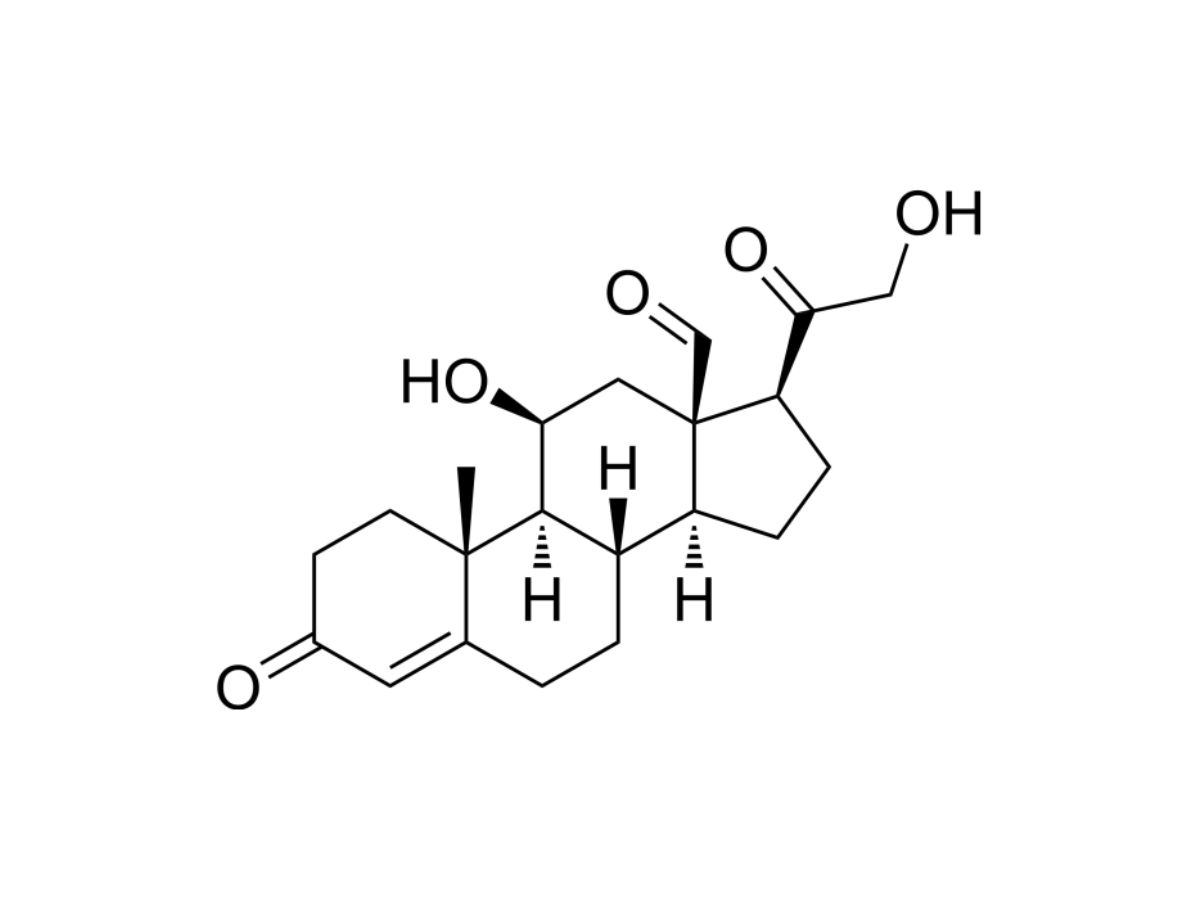
Aldosterone is a hormone that plays a crucial role in regulating blood pressure and maintaining the balance of electrolytes in the body. Produced by the adrenal glands, it helps control the amount of sodium and potassium in the blood. But what exactly does aldosterone do, and why is it so important? This blog post will delve into 50 fascinating facts about this vital hormone, shedding light on its functions, how it affects health, and what happens when levels are too high or too low. Whether you're a student, a health enthusiast, or just curious, you'll find these facts both informative and engaging.
What is Aldosterone?
Aldosterone is a hormone produced by the adrenal glands, which sit atop the kidneys. It plays a crucial role in regulating blood pressure by managing the balance of sodium and potassium in the body. Let's dive into some fascinating facts about this essential hormone.
-
Aldosterone is part of the renin-angiotensin-aldosterone system (RAAS), which helps control blood pressure and fluid balance.
-
The adrenal cortex, specifically the zona glomerulosa, is where aldosterone is synthesized.
-
Aldosterone's primary function is to increase sodium reabsorption in the kidneys, which helps retain water and increase blood volume.
-
By promoting sodium retention, aldosterone indirectly influences potassium excretion, maintaining electrolyte balance.
-
High levels of aldosterone can lead to a condition called hyperaldosteronism, characterized by high blood pressure and low potassium levels.
How Aldosterone Affects the Body
Understanding how aldosterone impacts various bodily functions can provide insight into its importance. Here are some key effects of this hormone.
-
Aldosterone helps regulate blood pressure by increasing the reabsorption of sodium and water in the kidneys.
-
It plays a role in maintaining the body's acid-base balance by influencing hydrogen ion excretion.
-
Aldosterone affects the cardiovascular system by promoting the retention of sodium and water, which can increase blood volume and pressure.
-
It also has an impact on the nervous system, as electrolyte imbalances can affect nerve function and muscle contractions.
-
Aldosterone influences the body's response to stress by regulating fluid and electrolyte balance, which can affect overall health and well-being.
Conditions Related to Aldosterone Imbalance
Aldosterone levels that are too high or too low can lead to various health issues. Here are some conditions associated with aldosterone imbalances.
-
Hyperaldosteronism is a condition where the body produces too much aldosterone, leading to high blood pressure and low potassium levels.
-
Primary hyperaldosteronism, also known as Conn's syndrome, is caused by an adrenal gland tumor that overproduces aldosterone.
-
Secondary hyperaldosteronism occurs when other conditions, such as heart failure or liver cirrhosis, cause increased aldosterone production.
-
Hypoaldosteronism is a condition where the body produces too little aldosterone, leading to low blood pressure and high potassium levels.
-
Addison's disease is an autoimmune disorder that can result in hypoaldosteronism due to damage to the adrenal glands.
Aldosterone and Diet
Diet can influence aldosterone levels and overall health. Here are some dietary factors related to aldosterone.
-
High sodium intake can lead to increased aldosterone production as the body tries to balance sodium and potassium levels.
-
Potassium-rich foods, such as bananas and spinach, can help regulate aldosterone levels by promoting potassium excretion.
-
A diet low in sodium can help manage conditions like hyperaldosteronism by reducing the need for aldosterone production.
-
Adequate hydration is essential for maintaining proper aldosterone function, as dehydration can trigger increased aldosterone release.
-
Consuming foods rich in magnesium, such as nuts and seeds, can support adrenal gland health and aldosterone production.
Aldosterone in Medical Research
Aldosterone continues to be a focus of medical research due to its significant impact on health. Here are some recent findings.
-
Researchers are exploring the role of aldosterone in heart disease, as high levels can contribute to heart failure and other cardiovascular issues.
-
Studies have shown that aldosterone antagonists, such as spironolactone, can be effective in treating conditions like heart failure and resistant hypertension.
-
New research is investigating the potential link between aldosterone and metabolic disorders, such as obesity and diabetes.
-
Scientists are examining the genetic factors that influence aldosterone production and how they may contribute to conditions like hyperaldosteronism.
-
Ongoing studies are looking at the role of aldosterone in kidney disease, as it can contribute to kidney damage and dysfunction.
Interesting Facts about Aldosterone
Here are some intriguing tidbits about aldosterone that you might not know.
-
Aldosterone was first discovered in the 1950s by researchers studying the adrenal glands.
-
The hormone is named after the Latin word "aldosteronum," which means "pertaining to the adrenal cortex."
-
Aldosterone has a half-life of about 20 minutes, meaning it is quickly broken down and removed from the bloodstream.
-
The hormone's production is regulated by the renin-angiotensin system, which responds to changes in blood pressure and fluid balance.
-
Aldosterone levels can be measured through blood tests, which can help diagnose conditions like hyperaldosteronism and Addison's disease.
Aldosterone and Stress
Stress can have a significant impact on aldosterone levels. Here are some ways stress affects this hormone.
-
Chronic stress can lead to increased aldosterone production, as the body tries to retain sodium and water to cope with stress.
-
High aldosterone levels during stress can contribute to high blood pressure and other cardiovascular issues.
-
Stress-induced aldosterone production can also affect electrolyte balance, leading to symptoms like muscle cramps and fatigue.
-
Managing stress through techniques like meditation and exercise can help regulate aldosterone levels and improve overall health.
-
Adequate sleep is essential for maintaining proper aldosterone function, as sleep deprivation can increase stress and aldosterone production.
Aldosterone and Exercise
Physical activity can influence aldosterone levels and overall health. Here are some ways exercise affects this hormone.
-
Regular exercise can help regulate aldosterone levels by promoting healthy blood pressure and fluid balance.
-
Intense physical activity can temporarily increase aldosterone production as the body tries to retain sodium and water.
-
Hydration is crucial during exercise, as dehydration can trigger increased aldosterone release.
-
Endurance athletes may experience higher aldosterone levels due to prolonged physical stress and fluid loss.
-
Incorporating rest and recovery into an exercise routine can help maintain proper aldosterone function and overall health.
Aldosterone and Aging
Aging can affect aldosterone production and function. Here are some ways aging impacts this hormone.
-
Aldosterone levels tend to decrease with age, which can contribute to lower blood pressure and electrolyte imbalances.
-
Older adults may be more susceptible to conditions like hypoaldosteronism due to decreased adrenal gland function.
-
Age-related changes in kidney function can affect aldosterone's ability to regulate fluid and electrolyte balance.
-
Maintaining a healthy diet and lifestyle can help support aldosterone production and function as we age.
-
Regular medical check-ups can help monitor aldosterone levels and address any age-related imbalances.
Aldosterone and Gender Differences
There are some differences in aldosterone production and function between males and females. Here are a few key points.
-
Studies have shown that females tend to have higher aldosterone levels than males, which may be related to hormonal differences.
-
Pregnancy can significantly increase aldosterone production as the body retains more sodium and water to support the growing fetus.
-
Hormonal changes during the menstrual cycle can also affect aldosterone levels, leading to fluctuations in fluid balance.
-
Menopause can lead to decreased aldosterone production, which may contribute to symptoms like low blood pressure and fatigue.
-
Understanding these gender differences can help tailor treatments for conditions related to aldosterone imbalances.
Final Thoughts on Aldosterone
Aldosterone plays a vital role in maintaining our body's balance. It helps regulate blood pressure, sodium, and potassium levels. Without it, our bodies would struggle to keep these essential functions in check. Understanding aldosterone's impact can lead to better health decisions and awareness of conditions like Addison's disease or hyperaldosteronism.
Knowing these 50 facts about aldosterone gives you a solid foundation. Whether you're a student, a health enthusiast, or just curious, this knowledge can be empowering. Always consult healthcare professionals for any concerns about aldosterone or related health issues.
Stay informed, stay healthy, and remember, every small piece of knowledge contributes to a bigger picture of well-being. Keep exploring, keep learning, and never underestimate the power of understanding your body's inner workings.
Was this page helpful?
Our commitment to delivering trustworthy and engaging content is at the heart of what we do. Each fact on our site is contributed by real users like you, bringing a wealth of diverse insights and information. To ensure the highest standards of accuracy and reliability, our dedicated editors meticulously review each submission. This process guarantees that the facts we share are not only fascinating but also credible. Trust in our commitment to quality and authenticity as you explore and learn with us.


